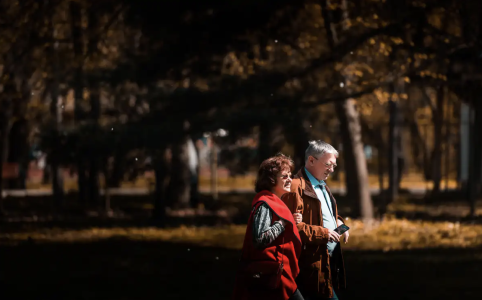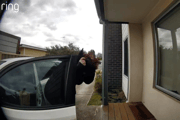SDC Rewards Member
Upgrade yours now
What happens in our brain and body when we’re in love?
Love dominates our popular culture and is the subject of countless songs, movies, and works of literature and art. But what’s happening in our body when we feel love?
Love is difficult to define, but can be described as an intense feeling of deep affection. At the most basic level, science sees love as a cocktail of chemicals released by the brain.
From an evolutionary perspective, romantic love evolved from the primitive animal drive to find and keep preferred mates. Love keeps people bonded and committed to one another, to raise children through infancy. This ensures our species will continue to reproduce, survive and thrive.
However, romantic love is not just about reproduction. Some argue we should consider love a motivation, like hunger, thirst, sleep or sex.
There are many benefits of loving others and being loved. These include better mental health, wellbeing and immune function, and reduced chronic stress and disease.
What happens when someone initially falls in love?
Falling in love typically begins when someone starts to see another person as special and unique.The initial phase of falling in love is an extreme neurobiological state, characterised by heightened responses and high passion. Lust and attraction are driven by the sex hormones, estrogen and testosterone, as motivations for sex.
Specific areas of the brain are activated when you fall in love, in particular the limbic system and the reward centres. The limbic system has key roles in emotion and memory. This causes a positive mood and explains why the memories associated with new love are so strong.

Memories of early love are strong because the brain’s limbic system is activated. Masha S/Unsplash
There is also an increase in dopamine and noradrenaline. Dopamine stimulates the reward pathways and increases motivation and obsessive thoughts and behaviours to pursue the love interest. Noradrenaline causes the feelings of euphoria, and the physiological responses of a faster heart rate, butterflies in the stomach and increased energy.
At the same time, other brain areas are deactivated. Reduced activity in the frontal cortex reduces negative emotions and judgements. This explains why initially people may be blind to faults in the person they are in love with.
But while you might be feeling less judgement, there is also increased cortisol, stress and feelings of insecurity in the early phase of falling in love.
How does romantic love change over time?
The initial phase of falling in love and intense infatuation lasts for several months.During the next phase, there is increased intimacy, commitment and attachment. This is driven by the hormones oxytocin and vasopressin. Oxytocin helps us feel safe and secure after the initial high cortisol and stress of the uncertainty and risk of falling in love. Vasopressin promotes behaviours of vigilance and being territorial and self-protective.
Between oxytocin and vasopressin there is a balance of connecting with others while also protecting the person you are in love with and yourself.

Oxytocin helps us feel safe and secure. Alex Blajan/Unsplash
Oxytocin is often called the “hormone of love” because it facilitates the formation of social bonds and connections. However, new research in animal models suggests oxytocin is not essential for life-long pair-bonding as previously thought.
Sexual activity is distinct from love, but it does reinforce attachment. When we touch, kiss or have sex, oxytocin and vasopressin are released, which promotes love and commitment between a couple.
Years into a romantic relationship, there is often a period of transition from passionate love to companion love. High intimacy and commitment help to sustain this love. Some relationships end at this time because of the reduced passion, while other couples remain in the passionate love phase for decades.
What about non-romantic love?
Beyond its role in romantic love, oxytocin is important in all forms of love, including with family, friends and even pets. Positive social relationships and oxytocin have many benefits on human health, wellbeing and longevity.In our research, we have shown oxytocin is associated with better quality of life and healthier social connections, among people with and without depression.
So, for the love of your favourite person, people or pet(s), whoever they are, however long you love them for, and however many times you fall in love, relish loving and being loved.
Love might just be nature’s best chemical cocktail. But all the intricacies of the complex behaviour and emotion of love continue to elude science.
This article was first published on The Conversation, and was written by Theresa Larkin, Associate professor of Medical Sciences, University of Wollongong, Susan J Thomas, Associate professor, University of Wollongong





